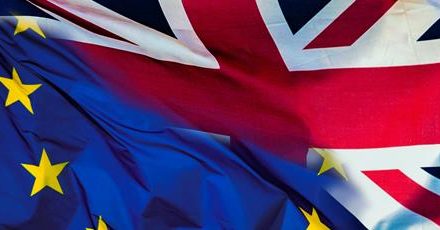In John Gast’s American Progress, Manifest Destiny guides homesteaders towards their western future on the newly-built railroads. These railroads created the sprawling empires and vast wealth of businessmen like Vanderbilt and Gould’s. But none of this would have led America to economic success had the administrations of Cleveland and Harrison not broken their monopolies and opened rail transportation to the masses.
In the case of the thwarted Siemens-Alstom merger, which would have created another behemoth of the railways, things are less clear-cut. Last week, the EU’s Commissioner for Competition, Margrethe Vestager, blocked the deal, believing it would threaten healthy competition. This is the latest example of a long tradition of EU’s competition watchdog’s advocacy for free and fair competition across Europe.
The Siemens-Alstom merger decision may prove to be its swan song. As the protectionist voices of France and Germany come to dominate the conversation, both countries have decried the move to block the merger, with the German economy minister Peter Altmaier and French finance minister Bruno Le Maire taking the traditional monopolist’s line. As Le Maire put it, ‘we need international champions in Europe that are able to compete globally’.
That there exist even a few solitary voices – chiefly from the EU’s competition watchdog – speaking up for the consumer and free-market competition is largely due to the formative influence of the UK in the development of European competition law. The British approach to competition policy, an economics-based method focussing on consumer welfare and corporate power, was cemented in the EU under the watch of Sir Francis Jacobs, Advocate General from 1988 to 2006, and Lord Brittan, Commissioner for Competition between 1989 and 1993. They had the idea that, by taking competition control away from self-interested national states, the EU could act as a neutral party, even-handedly acting in the best interest of the consumer. Despite the philosophy instilled by the British and continued by Vestager, they have done little to stem the tide of protectionism in the EU.
The British mistake at the time was to assume France and Germany would come to the same understanding. At their insistence, policies designed to promote fairness only served to give France and Germany in particular the ability to aid their domestic industries at the expense of others. Now, as pressures mount at home, their embattled political establishment is once again turning to these powers. While Germany might have avoided a technical recession at the end of last year, exports of German cars and car parts have fallen 9% and industrial production has collapsed to -4%, the lowest level since the height of the Great Recession in 2009. It is small wonder that the German government are snatching at a new source of economic advantage. Macron, facing an onslaught from the Gilets Jaunes protestors, is equally ready to exploit any chance of masking the French economy’s underlying problems.
France and Germany are acting here in unison, u-turning on the free-market principles they have previously espoused, and calling instead for protectionism. Despite few believing that CRRC – the state-backed Chinese rail company – has any imminent intention of entering the market, China has been used as the motivation for these policies, with the French and German governments arguing that the merger must happen to prevent what Le Maire called, ‘the rising power of the Chinese in the rail sector’.
A far likelier explanation is that the flow of Chinese investment to the EU has fallen. The EU was sanguine about the influence of China when Chinese FDI was rising, going from almost nothing in the early 2000s to €35bn in 2016.
The EU is correct to diagnose the dangers of Chinese expansion, but it is a foolish to try to beat China at their own protectionist game. In an era where state-backed enterprises are becoming more and more common, the need for the innovation and efficiencies wrought by a fiercely competitive market are ever more vital. The end of the US rail monopolies opened an era of trade and prosperity that propelled America. By unhitching ourselves from the EU’s protectionist trajectory, the UK could do the same.


